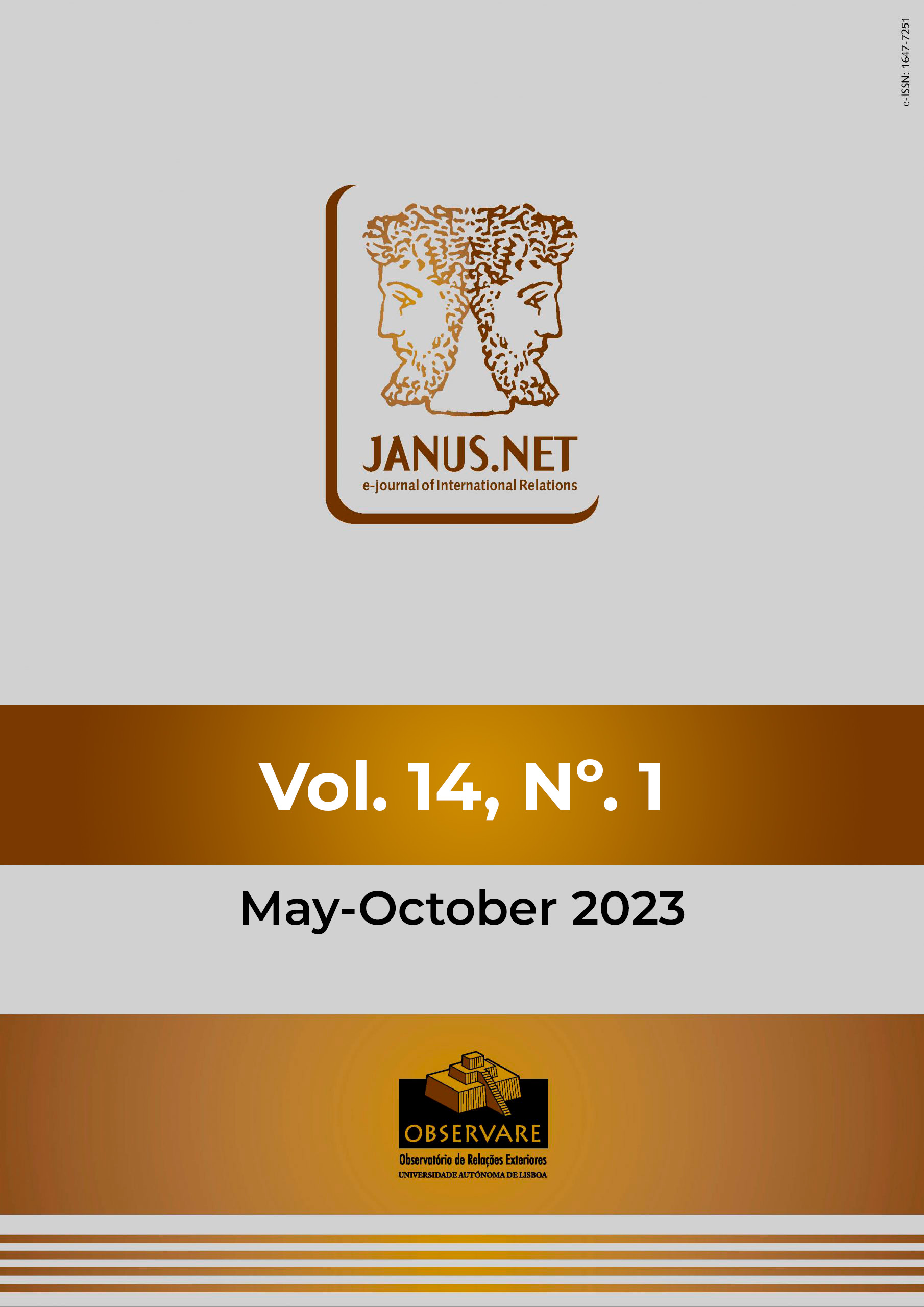Foreign Policy Analysis is an innovative tool within International Relations, which, like the
discipline itself, emerged after the Second World War, in a scenario of intense proliferation of
studies about the international reality. It was in this movement towards the affirmation of this
new discipline, accompanied by the growing relevance of foreign policy, both for States and
for IR, that the study of foreign policy itself developed and became autonomous, through the
emergence of the APE. Endowed with an innovative repertoire and seeking to carry out a
deeper analysis than the traditional approach, the APE moved the object of study to the
decision maker and to the causes that really led him to adopt a given decision. In this article
we will seek to expose the relevance of the Foreign Policy Analysis, and, for that, we will resort
to a case study: Portugal’s accession to the European Communities. Completed in 1986, joining
the EEC was the culmination of a long membership process that began in 1976/77, when the
First Constitutional Government, led by Mário Soares, sent the application for membership. It
is here, in sending the application for membership, that we find the center of the decision, and
therefore, it is here that our study will also focus. Using the APE, we observe that, behind this
decision, we do not find only national interest as a motivation, as a traditional analysis might
suggest, but above all pressures, perceptions and ideals that translate into the will of the
decision maker. In this way, Portugal’s accession to the EEC was, more than a result of the
structure, a result of the perception and idiosyncrasy of the agency, whose characterization is
presented in this article.
A RELEVÂNCIA DA APE PARA O ESTUDO DA POLÍTICA EXTERNA: O CASO DA ADESÃO DE PORTUGAL À CEE
»
Mestrando em Relações Internacionais na Universidade Lusíada, Porto (Portugal), licenciado em
Estudos Europeus, Estudos Lusófonos e Relações Internacionais, Universidade Lusófona,
Centro Universitário do Porto
Resumo
A Análise de Política Externa (APE) é um sub-field dentro das Relações Internacionais, que, tal
como a própria disciplina, surgiu após a Segunda Guerra Mundial, num cenário de intensa
proliferação dos estudos acerca da realidade internacional. Foi neste movimento de afirmação
desta nova disciplina, acompanhado pela crescente relevância da política externa, quer para
os Estados, quer para as RI, que o próprio estudo da política externa se desenvolveu e
autonomizou, através do surgimento da APE. Dotada de uma metodologia inovadora e
procurando realizar uma análise mais profunda do que a abordagem tradicional, a APE centrou
o objeto de estudo no decisor e nas causas que realmente o levaram a adotar uma dada
decisão. Neste artigo, iremos procurar expor a relevância da Análise de Política Externa e, para
isso, recorreremos a um estudo de caso: a adesão de Portugal às Comunidades Europeias.
Finalizada em 1986, a adesão à CEE foi o culminar de um longo processo de adesão que se
iniciou em 1976/77, quando o I Governo Constitucional, liderado por Mário Soares, enviou o
pedido de adesão. É aqui, no envio do pedido de adesão, que encontramos o centro da decisão,
e, portanto, é também aqui que o nosso estudo se vai centrar. Recorrendo à APE, observamos
que, por detrás desta decisão, não encontramos como motivação somente o interesse
nacional, como uma análise tradicional poderia sugerir, mas sobretudo pressões, perceções e
ideais que se traduzem na vontade do decisor. Desta forma, a adesão de Portugal à CEE foi,
mais do que resultado da Estrutura, resultado da perceção e idiossincrasia da Agência, cuja
caracterização é apresentada neste artigo.
Palavras-chave
Como citar este artigo
Silva, Fávio Bastos da (2023). A relevânca da APE para o estudo da política externa: o caso da
adesão de Portugal à CEE, Janus.net, e-journal of international relations, Vol14 N1, Maio-Outubro
2023. Consultado [em linha] em data da última consulta, https://doi.org/10.26619/1647-7251.14.1.13
Article received on 8 January, 2023 and accepted for publication on 24 February, 2023















